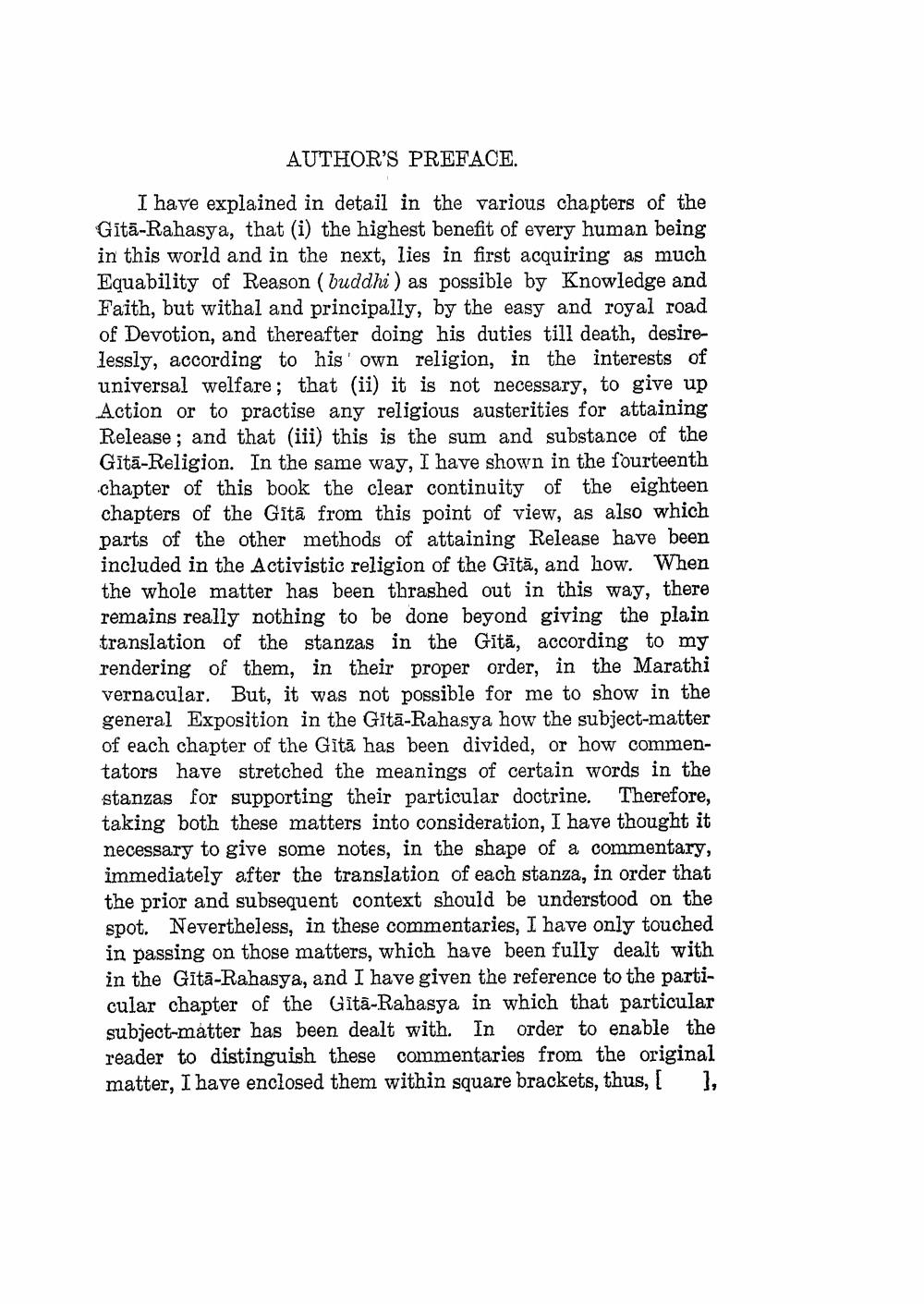________________
AUTHOR'S PREFACE.
I have explained in detail in the various chapters of the Gītā-Rahasya, that (i) the highest benefit of every human being in this world and in the next, lies in first acquiring as much Equability of Reason (buddhi ) as possible by Knowledge and Faith, but withal and principally, by the easy and royal road of Devotion, and thereafter doing his duties till death, desirelessly, according to his own religion, in the interests of universal welfare; that (ii) it is not necessary, to give up Action or to practise any religious austerities for attaining Release; and that (iii) this is the sum and substance of the Gītā-Religion. In the same way, I have shown in the fourteenth chapter of this book the clear continuity of the eighteen chapters of the Gītā from this point of view, as also which parts of the other methods of attaining Release have been included in the Activistic religion of the Gītā, and how. When the whole matter has been thrashed out in this way, there remains really nothing to be done beyond giving the plain translation of the stanzas in the Gītā, according to my rendering of them, in their proper order, in the Marathi vernacular. But, it was not possible for me to show in the general Exposition in the Gītā-Rahasya how the subject-matter of each chapter of the Gītā has been divided, or how commentators have stretched the meanings of certain words in the stanzas for supporting their particular doctrine. Therefore, taking both these matters into consideration, I have thought it necessary to give some notes, in the shape of a commentary, immediately after the translation of each stanza, in order that the prior and subsequent context should be understood on the spot. Nevertheless, in these commentaries, I have only touched in passing on those matters, which have been fully dealt with in the Gītā-Rahasya, and I have given the reference to the particular chapter of the Gitā-Rahasya in which that particular subject matter has been dealt with. In order to enable the reader to distinguish these commentaries from the original matter, I have enclosed them within square brackets, thus, [ ],




